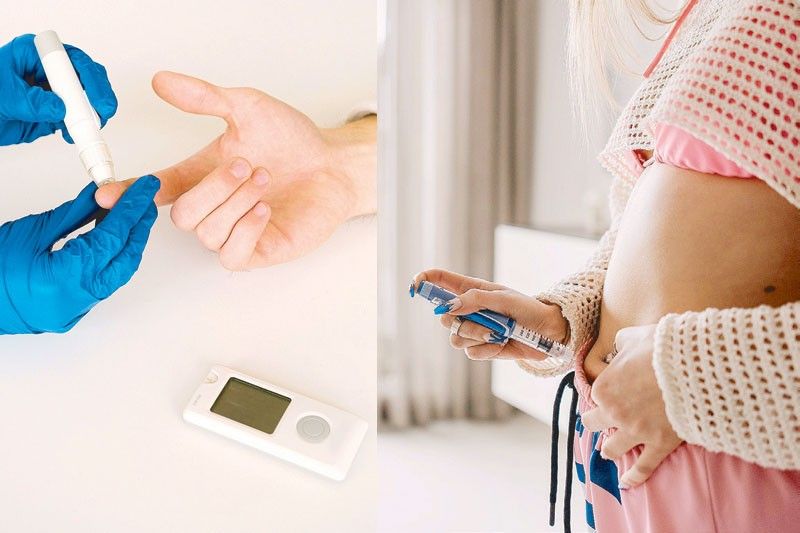Skin rash, bladder problems and diabetes

AD’s life hit rock bottom when he was diagnosed with diabetes mellitus in late 2016.
Being diagnosed with diabetes can be intense and come with different emotions such as anger, depression, confusion, anxiety, even acceptance. As such, one of the most common initial reactions is denial. It’s your mind’s way of coping with tough news, like an automatic defense mechanism. Here are examples of diabetes denial thoughts:
• Thinking that it is no big deal and there are more serious things that could happen.
• Believing you are not in control of it, so why bother to try to manage it.
• Considering it as borderline diabetes instead of a full-fledged diagnosis.
• Feeling stigmatized or embarrassed about the diagnosis, therefore choosing not to acknowledge it.
A short-term bout of disbelief is one thing, but prolonged denial can be damaging and downright dangerous. Unfortunately, choosing to ignore diabetes and uncontrolled blood sugar levels can lead to serious complications in the long term such as heart disease, eye problems, kidney damage, as well as nerve, circulatory problems, and skin changes as well. Immediate problems can happen to those with already very high blood sugar at diagnosis, which can lead to dehydration and other health emergencies. Waiting too long to come to terms with diabetes can be a missed opportunity to successfully manage it, prevent complications, and live a long healthy life.
Before AD was diagnosed, symptoms like feeling thirsty had already started. He would usually drink soft drinks to quench his thirst. He would also feel sleepy during the day, but found it difficult to sleep at night.
His lifestyle would include smoking a lot due to his stressful job (chemicals in cigarette smoke can worsen inflammation and oxidative stress in the cells. It can also decrease blood flow in your eyes) and drinking liquor or beer at night..
For years, he was adrift in the river of denial. Years passed and AD started developing other more alarming symptoms. First was his eye symptom. Bleeding in his eyes started to occur. He started getting spots that began blocking his vision.
Our eyes are likened to a camera. The front part is the lens and the back part or the retina is the film. That is where you process vision. When your blood sugar is high for months or years, blood vessels of the retina can swell and leak fluid or blood.
At first you may just be fine, but as time passes your vision starts to blur. That’s because the center of the retina swells from leakage and bleeding. It’s called macular edema.
You may not be able to read small print or even the words on road signs. In some people, the retina will grow new, abnormal vessels to scrounge for more blood and oxygen (proliferative retinopathy). These new blood vessels break easily and trigger more bleeding; that is why you see spots.
Eventually these can develop into lumps of scar tissue in the eye that can cause the retina to detach from the nerve that goes to your brain, and you could go blind.
After several months, even with diabetes treatment, AD gradually developed skin itchiness (which is not improved by antihistamines) — usually in the evening. Dry skin and eyes, too.
As diabetes persists, symptoms add up and get worse. AD, who is now a senior, also developed an increased urge to urinate even when asleep.
Diabetes forces your bladder (that structure of our body that holds urine and expels it if already full) to handle a lot of urine because in diabetes your body retains more fluid. You may wake up often at night to use the bathroom. The interrupted sleep can be one reason diabetes leaves you tired.
Diabetes also damages your nerves so you will not feel that your bladder is full. You could leak pee. Weakened urinary muscles can make it harder for AD to empty his bladder fully. Poor bladder control, plus high blood sugar and immune problems can lead to urinary tract infections.
As for AD’s skin concerns, itching and dry skin problems are much better now, although he admits to being lackadaisical about following instructions for his skin concerns.
He also has pigmented pretibial patches or diabetic shin spots (dark spots in front of legs) called diabetic dermopathy (DD), which is the most common dermatologic manifestations of diabetes. Origin of DD remains unclear. However, mild trauma to affected areas results in hemosiderin deposition. A hemosiderin stain looks like a patch of skin that is a darker color than the surrounding skin. It can look like bruising, or it can be brownish or rust colored. Over time, the discoloration may become darker and look nearly black.
Hemosiderin staining usually happens on the lower leg, near the ankles, or on your feet. It is caused by blood leaking out of the tiny vessels called capillaries. The blood pools under the skin and leave a residue of hemoglobin that settles in the tissue there. Hemoglobin contains iron, which causes the rusty color of the stains) plus deposition of melanin, too. Microangiopathic changes (a disease of the capillaries in which the capillary walls become so thick and weak that they bleed, leak protein, and slow the flow of blood), and destruction of subcutaneous nerves, have all been suggested as a cause of DD.
Treatment is typically avoided given the asymptomatic and self-resolving nature of DD, as well the ineffectiveness of available treatments, but keratolytics and whitening creams can help in a faster resolution.
Although it is important to manage diabetes and its complications accordingly, there is no evidence that improved glycemic control alters the development of DD.
Understanding the nature of diabetes denial and ways to cope with it can be very helpful towards making the first steps to acknowledging and successfully managing the condition to ensure longevity and good quality of life.
* * *
For inquiries, call 0917-5711992, 0999-8834802, 8401-8411 or email gc_beltran@yahoo.com)



















